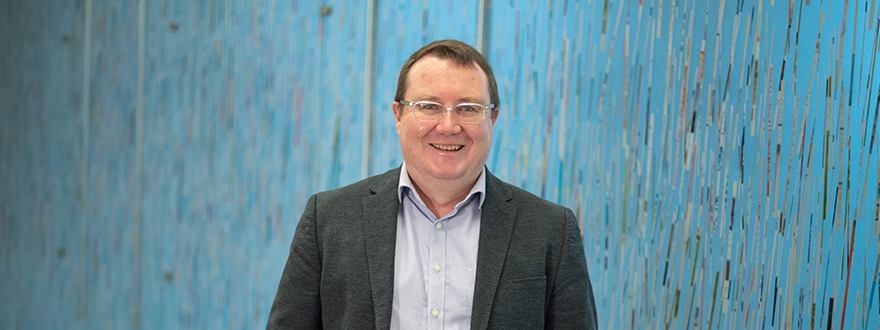Bringing Indigenous stories to the table in environmental health policy

By Cam Buchan
Gerald McKinley, PhD, wants to tell a different story about Indigenous communities and climate change. A story told not in data points and degrees, but in anecdotes about relationships with the land.
“We do really good work relying on the science of the environment, pollution levels and things like that,” said McKinley, assistant professor in pathology and laboratory medicine, who works in the area of the social determinants of mental health with First Nations communities. “But Indigenous people were always trying to tell us stories about the changes that happened to their communities, about going on the land to collect medicines, or for ceremony, or living on the water and fishing.”
“We’re looking for stories that people tell about the environment and how we can learn from them in order to develop policies that pay attention to lived experiences.”
— Gerald McKinley, PhD
McKinley was recently named a Harkness Fellow in Health Care Policy and Practice, giving him a chance to spend a year at a university in the U.S. conducting original research in this area. McKinley will study methodologies that can be used to increase community voices in the development of environmental health policy.
He will work to incorporate stories to highlight the local context of a complex global problem and deliver a critical perspective to environmental consultation done between Indigenous people, government, and industry when Indigenous rights and ways of living are affected.
“This is a perspective that is often outside of the scope of our work and left off the table in these negotiations,” said McKinley. “So, my proposal is to make sure community voices are present in the development of environmental health policies. We’re looking for stories that people tell about the environment and how we can learn from them in order to develop policies that pay attention to lived experiences.”
The Fellowship will help him gain a better understanding of policy development through access to U.S. and global policy experts. School options have not been decided yet, but both Brown University, and Cornell University are on the list.
And the result?
“I hope the experience makes me a better partner in gaining voice in policy decisions with the First Nations communities I work with.”
McKinley also hopes students in his “Social Cultural Determinants of Health” class, part of the Master of Public Health program, will benefit. The class addresses the impact of behavioural, social and cultural factors on individual and community health and health disparities.
“Because, if we can shift the minds, the perspectives and the skillsets of students who are going to work in public health, we can have a fairly large impact in Canadian health policy.”








